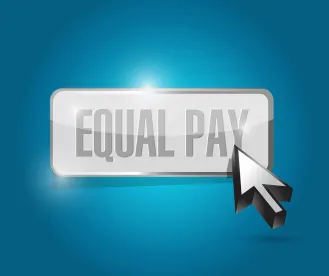The law, which the governor is expected to sign, features a new “substantially similar” standard, strict limits on seeking compensation history, and an affirmative defense for good-faith self-evaluations.
The General Court of the Commonwealth of Massachusetts passed, and Governor Charlie Baker is expected to sign into law, a pay equity bill geared toward closing the gender wage gap and ensuring equal pay for “comparable work” among men and women. The Massachusetts House and Senate voted unanimously in favor of a final bill on July 23. The bill, which is receiving support from both business groups and women’s rights groups, must be signed by the governor, or sent back to the House and Senate with recommended changes, no later than August 2.
Once signed, the new law takes effect on July 1, 2018. In the meantime, employers should consider changes in a number of hiring, recruitment, and compensation practices. (These changes may also be informed by regulatory guidance from the Massachusetts attorney general, who is empowered to issue regulations under the new law.) As just one example, the new law’s prohibition on seeking compensation history will likely require changes to employers’ job applications. Multistate employers will have to consider how to comply with Massachusetts law if they use standard multistate employment documents. Such employers will also want to make sure that any changes in practices and documents comply with recent equal pay legislation in New York, California, Maryland, and other states.
Overview of Changes to the Existing Law
In 1945, Massachusetts enacted the first-in-the-nation equal pay law, the Massachusetts Equal Pay Act (MEPA). MEPA prohibits all public and private employers from discriminating in the payment of wages between men and women and from paying any employee less than the rate paid to employees of the opposite sex for work of like or comparable character or work on like or comparable operations. The new legislation updates MEPA, deploying five key provisions to seek to eliminate the gender wage gap.
-
Comparable work—the “substantially similar” standard. The law broadens the definition of “comparable work” and prohibits employers from relying solely on a job title or job description to determine whether work is comparable. Where the original MEPA did not define “comparable work,” the new law defines “comparable work” to mean “work that is substantially similar in that it requires substantially similar skill, effort and responsibility and is performed under similar working conditions.”
Despite the law’s blanket prohibition of gender-based pay disparities, wage variations are permitted if based on
|
(a) |
seniority (provided, however, that time spent on leave because of pregnancy-related conditions and protected parental, family, and medical leave, shall not reduce seniority); |
|
(b) |
a merit system; |
|
(c) |
a system that measures earnings by quantity or quality of production, sales, or revenue; |
|
(d) |
geographic location in which a job is performed; |
|
(e) |
education, training, or experience to the extent that such factors are reasonably related to the particular job in question; or |
|
(f) |
travel, if the travel is a regular and necessary condition of the particular job. |
-
Employees may discuss wages. The legislation promotes transparency by making it unlawful for employers to forbid employees from inquiring about, discussing, or disclosing salary information. Although this provision is new to MEPA, existing federal labor law provides similar protections. Notably, the law protects employers that may prohibit managers and supervisors from disclosing salary grids or information related to an employer’s pay practices. Specifically, an employer may prohibit an employee whose job responsibilities require or allow him or her access to other employees’ compensation information from disclosing nonpublic salary information without first receiving written authorization from the employee whose information will be disclosed. Employers themselves are not obligated to disclose an employee’s wages to another employee or to a third party.
-
Employers cannot require compensation history. The law prohibits employers from asking applicants for information about prior compensation, seeking such information from any current or former employer, and requiring that a prospective employee’s compensation history meet certain criteria. Employers may seek or confirm compensation information after an offer of employment with compensation has been negotiated and made to the prospective employee. Additionally, employers may confirm past wages prior to offering a candidate employment, but only if a prospective employee voluntarily discloses such information. In that instance, an employer may confirm prior compensation information or permit the prospective employee to do so.
-
Self-evaluation may be a defense to pay discrimination lawsuits. The law provides an affirmative defense to employers that engage in a good-faith self-evaluation of their pay practices and can demonstrate that reasonable progress has been made toward eliminating wage or compensation differentials based on gender for comparable work. This self-evaluation appears to be unique to the new Massachusetts law.
-
Pay cuts to equalize pay between men and women are not permitted. An employer cannot reduce an employee’s compensation solely to comply with the law.
Notably, the law also creates a special committee charged with analyzing the causes and effects of pay disparity on protected classes in addition to sex, such as race, national origin, sexual orientation, and gender identity. The committee must submit its findings to the Massachusetts House and Senate by January 1, 2019.
Additional Key Provisions
-
The law contains standard prohibitions against retaliation for exercising protected rights.
-
A violation of the law occurs whenever a discriminatory compensation decision or practice is adopted or when an employee becomes subject to, or affected by application of, a discriminatory compensation decision or practice. This includes each time wages are paid, resulting in whole or in part from such a decision or practice. For example, each discriminatory paycheck would be deemed a violation.
-
Claims under the law may be filed directly in court. No filing with the Massachusetts Commission Against Discrimination is required. Class and individual actions to recover damages may be maintained in any court of competent jurisdiction within three years after the date of the alleged violation. The attorney general may also bring an action to collect unpaid wages on behalf of one or more employees.
-
Damages include the amount of unpaid wages due to an aggrieved employee, plus an additional equal amount as liquidated damages (meaning the lost pay amount is doubled). A court must award a successful plaintiff his or her costs and reasonable attorney fees.
Self-Evaluation Affirmative Defense and Inadmissible Evidence
The law creates an affirmative defense for employers that engage in a good-faith self-evaluation of their pay practices and can demonstrate that they have made reasonable progress toward eliminating wage or compensation differentials based on gender for comparable work. An employer that has not completed a self-evaluation is not subject to a negative or adverse inference because of not doing so.
As a result, developing and implementing an appropriate and reasonable self-evaluation may be helpful to avoid and, if necessary, defend against a legal action and limit damages exposure. Employers may design their own self-evaluation, provided that it is reasonable in detail and scope in light of the employer’s size. Otherwise, an employer may conform its evaluation to templates, forms, and guidance to be issued by the Massachusetts attorney general. If an employer completes a self-evaluation but cannot demonstrate that the evaluation was reasonable in detail and scope, the employer will not be entitled to the affirmative defense but also will not be liable for liquidated damages.
The law limits the use as evidence against employers of their self-evaluations and remedial steps. Such evidence is inadmissible to prove a violation occurring prior to the date the self-evaluation was completed or that occurred (1) within six months thereafter or (2) within two years thereafter, if the employer can demonstrate that it has developed and begun implementing in good faith a plan to address gender-based wage differentials for comparable work.
Last, the law provides that an employee’s previous wage or salary history cannot be used as a defense to an action. Furthermore, an agreement between an employer and any employee to work for less than the wage to which the employee is entitled is no defense to an action.



 />i
/>i

